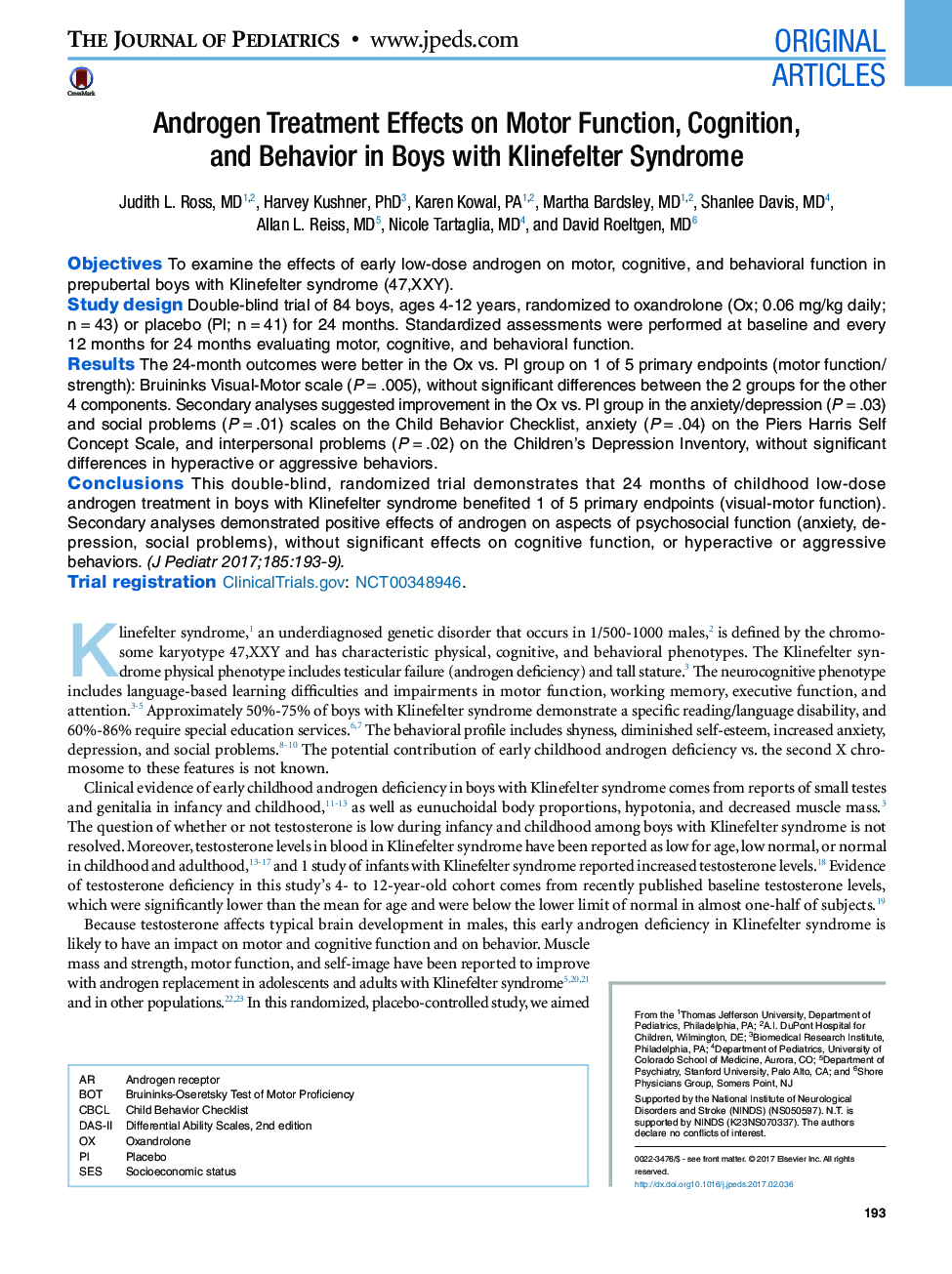| Article ID | Journal | Published Year | Pages | File Type |
|---|---|---|---|---|
| 5719138 | The Journal of Pediatrics | 2017 | 11 Pages |
ObjectivesTo examine the effects of early low-dose androgen on motor, cognitive, and behavioral function in prepubertal boys with Klinefelter syndrome (47,XXY).Study designDouble-blind trial of 84 boys, ages 4-12 years, randomized to oxandrolone (Ox; 0.06âmg/kg daily; nâ=â43) or placebo (Pl; nâ=â41) for 24 months. Standardized assessments were performed at baseline and every 12 months for 24 months evaluating motor, cognitive, and behavioral function.ResultsThe 24-month outcomes were better in the Ox vs. Pl group on 1 of 5 primary endpoints (motor function/strength): Bruininks Visual-Motor scale (Pâ=â.005), without significant differences between the 2 groups for the other 4 components. Secondary analyses suggested improvement in the Ox vs. Pl group in the anxiety/depression (Pâ=â.03) and social problems (Pâ=â.01) scales on the Child Behavior Checklist, anxiety (Pâ=â.04) on the Piers Harris Self Concept Scale, and interpersonal problems (Pâ=â.02) on the Children's Depression Inventory, without significant differences in hyperactive or aggressive behaviors.ConclusionsThis double-blind, randomized trial demonstrates that 24 months of childhood low-dose androgen treatment in boys with Klinefelter syndrome benefited 1 of 5 primary endpoints (visual-motor function). Secondary analyses demonstrated positive effects of androgen on aspects of psychosocial function (anxiety, depression, social problems), without significant effects on cognitive function, or hyperactive or aggressive behaviors.Trial registrationClinicalTrials.gov: NCT00348946.
